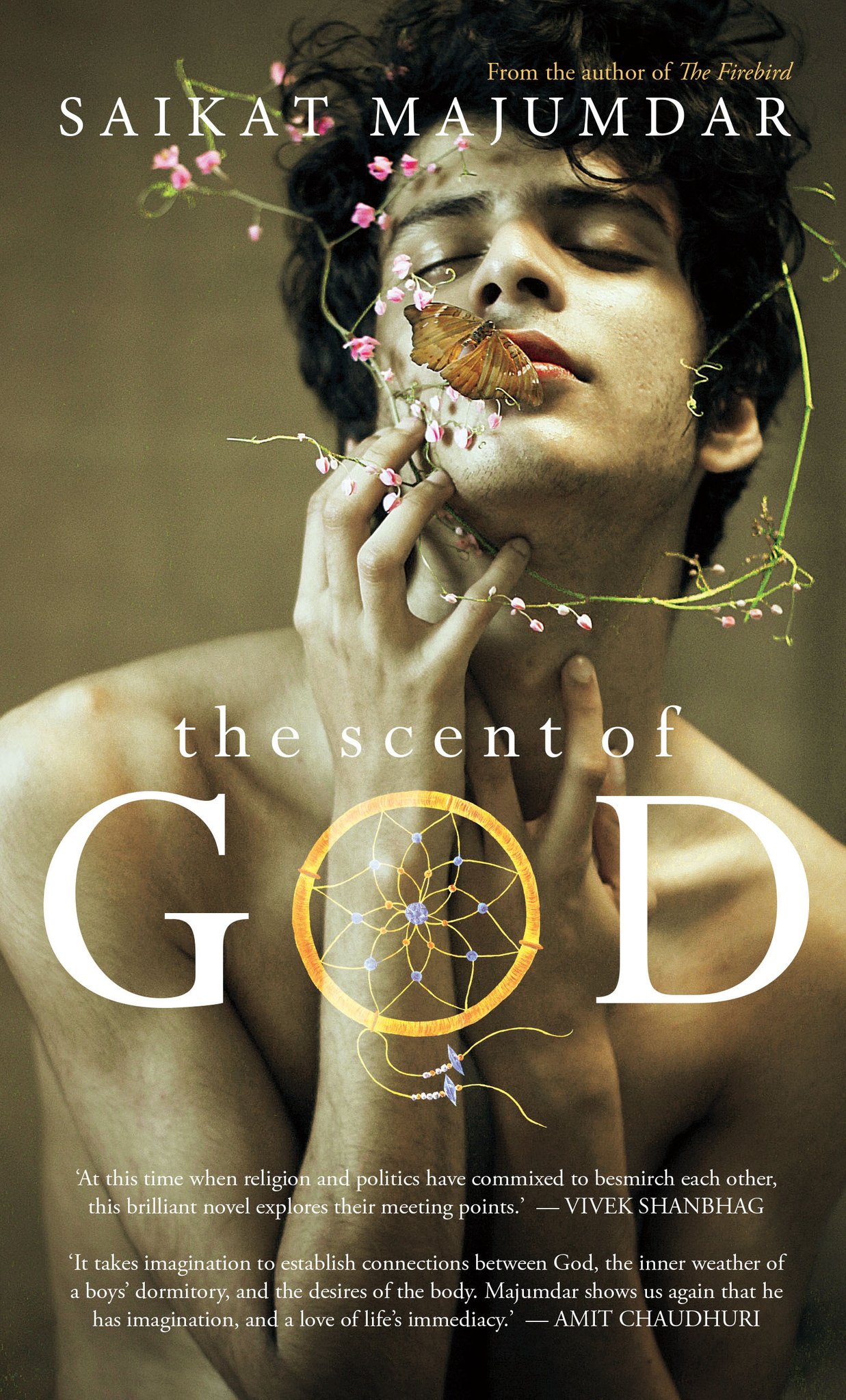I had such extraordinary high hopes for The Scent of God. The Indian publishing industry has very, very few openings for queer fiction; we get more non-fiction and memoirs. I love non-fiction, and memoirs are an important documentation of our lives, our loves, our stories, controlled by our own selves. But fiction! I want more Indian queer fiction. Queer fiction from our neighbours too. The Indian diaspora does have lovely queer fiction but I hunger for stories set here. I want our stories in our languages with our dirt and our fragrance and our ugliness and our beauty. The Scent of God covers these basic requests in the blurb and proceeds to deliver a lush, breath-taking story.
In a private school run by a very public monastery, Anirvan is growing up. His grandmother hopes he will purge his family’s sins (many, unnamed, terrible) by becoming a monk. His friend and love hopes he will make something of himself, study, study some more. His mentors have their own plans for him.
The Scent of God follows Anirvan (“Yogi”) through school and beyond. The novel is largely silent, seen through Anirvan’s eyes. Majumdar reminds us that so much of communication is through the body, through the eyes. The boys in school know more in their oppressive silences than Anirvan can tell a large crowd in a long impassioned speech. This silence is honest. You know that something is wrong. You see it. You have no words for it. Honesty eludes words; this is its virtue and its vice. How can you rail against the unspeakable?
Majumdar’s prose has a lucidity that pauses every moment to explore what the characters are feeling, how they are reacting. It draws out these teenage years into eternities without times and clocks, boys simply inhabiting their bodies and reaching out with their senses. The rigid order of the monastery takes on a richness of sensation, mirrored by the boys’ own desires, unknown, and warped through the teachers’ and monks’ repressed and sublimated urges.
If you are liberal, or urban, or live a life outside of a monastic order, the appeal is invisible. Why become a monk? What does this withdrawal from ‘society’ offer? Where do you find human love in an environment divorced from material reality? Where do you find human love in cruelty? Majumdar’s answers to this lie not in religious fervour but in loneliness and the need for connection; this connection is born in the silence of honesty, of not knowing, rather than in a moving world of politics and manipulation. The Scent of God is cynical about politics – even necessary politics. Religious fervour is a further, abstract concepts. You can only love God through your flesh and blood self. Where does this leave you?
How does a boy know when he is suffering? When does he know he has such a thing as consent? He does not, until an adult knows for him. Throughout the novel we see the impossibility of making your own choices until they have already been made for you by someone else. Mentors, priests, leaders are tender and ruthless.
An interesting theme through the novel is the impossibility of sincerely bridging the divide between experiencing privilege and oppression. Anirvan can spin the words but he cannot create the principles, the knowledge. He is surrounded by older enthusiasts who don’t have his skill but do have their own paths and ambitions. Privilege put food in Anirvan’s belly but did not help him decide his own fate.
Knowledge and eduation are double edged swords in this novel. Political organisation, resistance, empowerment all need words. In Anirvan we have a charismatic, intelligent boy who is not in charge of his self, his words, his body. His mentors all revolve around the monastery, in service, rebellion, hatred and obligation to it. Escape is possible – leave, study, enter a different system of merit and accomplishment. But that would be the same dance on a different stage.
The Scent of God is a lush novel that takes us through the many layers of love and longing. I read it in one sitting and am now looking for other books by this author. I want more fiction like this, for queer men and women, for cis and trans persons, for everyone in the margins who wants to see their community in thier fullest, vulnerable, brave humanity. I highly recommend Saikat Majumdar’s novel; you should pick it up as soon as possible.
- Book Review: ‘Lord of the Senses’ is a Tender, Honest and Earnest Collection Bound to Hold Your Heart Still - September 19, 2019
- Book Review: ‘The Broken Amoretti’ is an Utter Failure As a Queer Novel - September 10, 2019
- Book Review: The Scent of God - March 8, 2019


